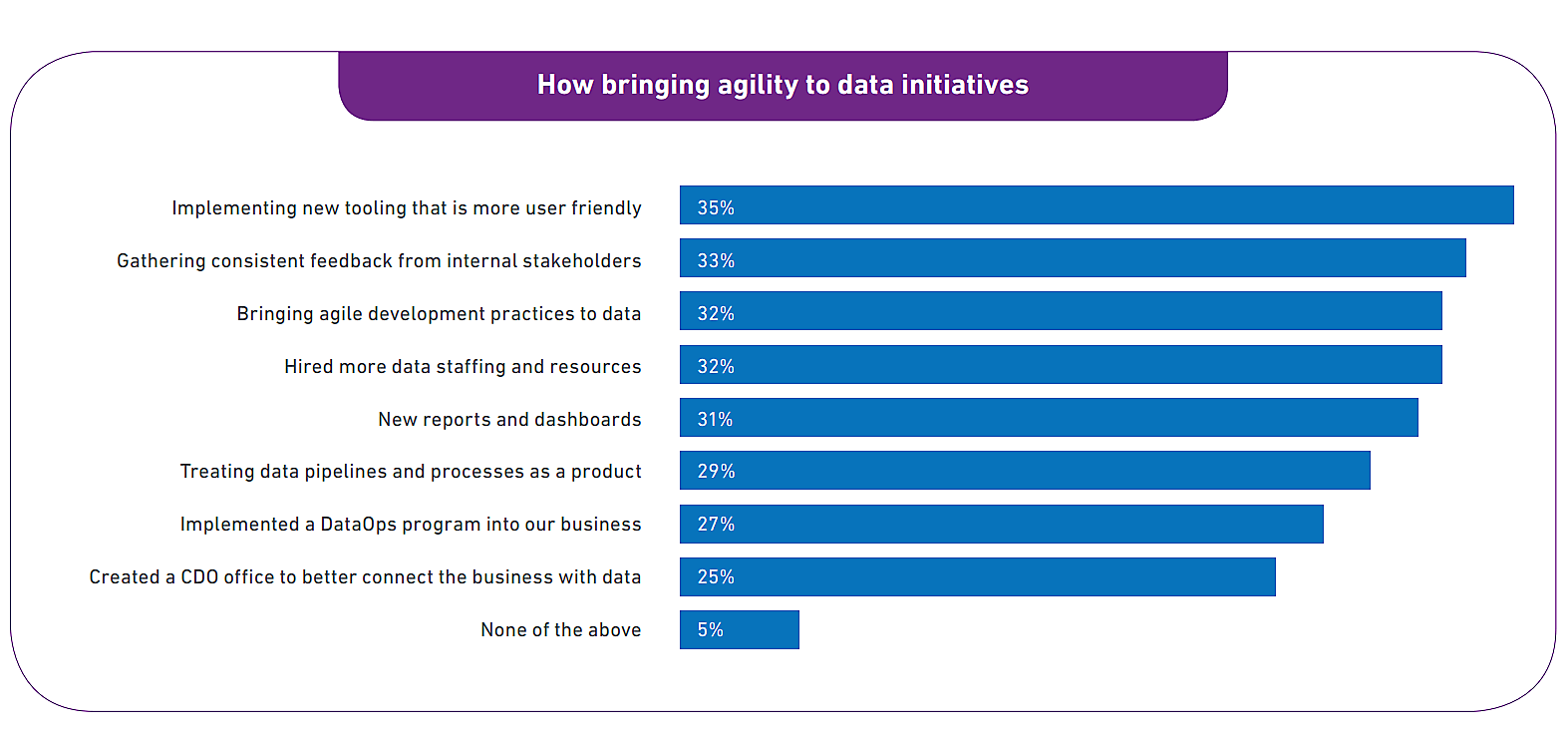In this article, we take a look at what it truly takes to become data driven and how giving data the prominence and value it deserves in your organization will work wonders for your long-term ambitions.
Unexpected events - unparalleled opportunity
While many industries had been preparing for some type of volatility, no one predicted the global pandemic and the scale of economic and social disruption it would cause. One outcome of the pandemic has also been the acceleration of transformational projects, such as cloud migrations or moving to digital consumer journeys. Organizations' focus on data has also grown, and as it moves up the Board agenda, organizations start to understand the value of this strategic asset and the power it has to drive performance.
But is the data ready for the challenge it is now being set?
The correlation between data maturity and trust
While becoming data driven can provide a multitude of benefits for organizations, from an improved customer experience to better decision-making and increased innovation, many still struggle to leverage data to achieve a competitive advantage.
Experian’s research discovered that 55 percent of business leaders say they lack trust in their data assets, hurting their ability to be fully data driven. Organizations surveyed said that they believe up to one third of the data they hold and use on a daily basis could be inaccurate. These statistics highlight the disparity between where organizations should be and their current state of data maturity.
The level of trust in data exhibited by our respondents differs depending on the data quality approaches they have taken. Organizations with the highest level of data quality maturity, those who have clear data ownership and where data quality is monitored as part of their standard business practices, are more likely to trust their data. Organizations with lower data quality maturity, those with little data ownership and only ad hoc approaches to data quality, unsurprisingly, often lack trust in their data.
However, organizations are optimistic about their data quality. Sixty-three percent believe the overall quality of the data in their organization has improved in the last 12 months. A sign perhaps that increased focus is beginning to turn the tide.
Organizations struggling with agility
One of the biggest challenges for organizations during the pandemic has been their inability to be agile, to be able to quickly pivot and act on decisions around the market, digital strategy, and operational tactics. Sixty-two percent of organizations admitted that a lack of agility in data processes hurt their response to changing business needs.
Again, we see a clear correlation between increased data maturity and an organization’s ability to react to changing circumstances (like a global pandemic) in an agile fashion. Those with poor data quality and a lack of ownership and accountability around their data processes were predominantly the organizations that expressed their inability to be agile enough.

Data: The strategic asset
The pandemic has certainly been a moment in time when organizations have stopped and assessed every angle of their operations. Businesses may have previously underestimated the value of their data and, as a result, not fully leveraged it to drive competitive differentiation.
A whopping 72 percent of respondents said that better data insight could have helped improve their response to the pandemic. That’s a sobering statistic. Seventy-four percent of organizations say they are now taking more responsibility for data quality than before the pandemic. Testament to the increased awareness and importance data is being given as a core asset that can improve operational performance.
Are you interested in learning how you can scale your data maturity? Read our research today.









